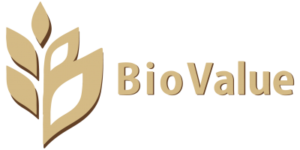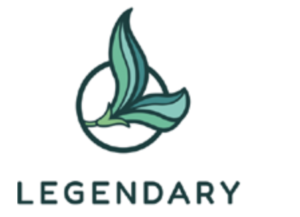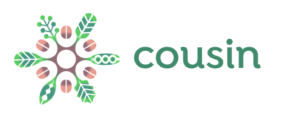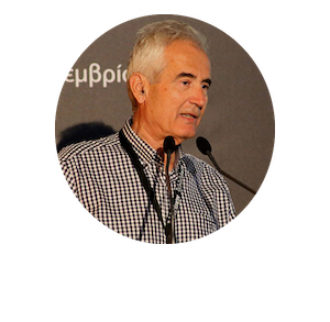Professor Konstadinos Mattas,
Aristotle University of Thessaloniki Greece – School of Agriculture.
Visiting Professor at CIHEAM/MAICH.
Research interests: Food and European Policy and analysis, Rural Development, Agricultural Marketing and Investment Analysis, and International Trade inter-industry analysis with a specialization in Input-Output models. He has published around 400 referred articles in international journals, collective volumes, and proceedings, cited by more than 5.000 times. He has contributed to international and Greek conferences and served as a referee to several journals, books, collected volumes etc. He is managing editor and participates in editorial boards of several scientific journals. His experience is broadened by his employment as a manager in an enterprise processing agricultural products and by his employment at the Ministry of Agriculture for several years. He has supervised more than 20 PhD students and is an expert in impact and policy analysis and has served in several relevant EU and National Food Policy Committees. He also served for six years as a member of the Board of the European Association of Agricultural Economists (EAAE). Professor Mattas has an extensive experience in Research projects, as he has successfully undertaken the roles of Scientific and Project Coordinator in more than 30 European Research Projects (currently coordinator of a Horizon 2020 Biodiversity project: BIOVALUE). In addition he collaborated with over 100 international students supervising them in their MSc and PhD level (30).
| Current Projects: | |
BIOVALUE | Role: Scientific and project coordinator at EU level. |
ECO-READY | Role: Scientific responsible for the Agricultural part |
LEGENDARY | Role: Project participant, WP leader, Partner leader. |
COUSIN | Role: Project participant, WP leader, Partner leader. |
GI-SMART | Role: Project participant, WP leader, Partner leader. |
| More Projects | |
| Selected recent publications: | |
| 1. Knez, M., Mattas, K., Gurinovic, M., Gkotzamani, A., Koukounaras, A. (2024). Revealing the power of green leafy vegetables: Cultivating diversity for health, environmental benefits, and sustainability. Global Food Security, 43, 100816. https://doi.org/10.1016/j.gfs.2024.100816 | |
| 2. Mattas, K., Staboulis, C., Tsakiridou, E., Natos, D., Polymeros, A., Baranowski, P., Bojar, … & Arfini, F. (2024). Facilitating generational renewal in rural areas by responding to young farmers’ voices: Echoes from the Greek territory. Journal of Rural Studies, 112, 103480. https://doi.org/10.1016/j.jrurstud.2024.103480 | |
| 3. Mattas, K., Nastis, S. A., Michailidis, A., Tsakiridou, E., Koutroubas, S. (2024). Unveiling the Hidden Gems: Minor Crops as Catalysts for Sustainable Development, Biodiversity Conservation, and Economic Resilience. Sustainable Development. https://doi.org/10.1002/sd.2930 | |
| 4. Günden, C., Atakan, P., Yercan, M., Mattas, K., & Knez, M. (2024). Consumer Response to Novel Foods: A Review of Behavioral Barriers and Drivers. Foods, 13(13), 2051. https://doi.org/10.3390/foods13132051 | |
| 5. Mattas, K., Raptou, E., Alayidi, A., Yener, G., & Baourakis, G. (2023). Assessing the interlinkage between biodiversity and diet through the Mediterranean diet case. Advances in Nutrition. https://doi.org/10.1016/j.advnut.2023.03.011 | |
| 6. Mattas, K., Tsakiridou, E., Karelakis, C., Lazaridou, D., Gorton, M., Filipović, J., ... & Veneziani, M. (2022). Strengthening the sustainability of European food chains through quality and procurement policies. Trends in Food Science & Technology, 120, 248 - 253. https://doi.org/10.1016/j.tifs.2021.11.021 | |
| 7. Tregear, A., Aničić, Z., Arfini, F., Biasini, B., Bituh, M., Bojović, R., ... Mattas, K. … & Tsakiridou, E. (2022). Routes to sustainability in public food procurement: An investigation of different models in primary school catering. Journal of Cleaner Production, 338, 130604. https://doi.org/10.1016/j.jclepro.2022.130604 | |
| 8. Raptou, E., Mattas, K., Tsakiridou, E., & Baourakis, G. (2022) Assessing the aftermath of COVID-19 outbreak in the agro-food system: an exploratory study of experts’ perspectives. Frontiers in Nutrition,9, 769626. https://doi.org/10.3389/fnut.2022.769626 | |
| 9. Bellassen, V., Drut, M., Hilal, M., Bodini, A., Donati, M., de Labarre, M. D., ... Mattas, K. … & Arfini, F. (2022). The economic, environmental and social performance of European certified food. Ecological Economics, 191, 107244. https://doi.org/10.1016/j.ecolecon.2021.107244 | |
| 10. Belgacem, W., Mattas, K., Arampatzis, G., & Baourakis, G. (2021). Changing Dietary Behavior for Better Biodiversity Preservation: A Preliminary Study. Nutrients, 13(6), 2076. https://doi.org/10.3390/nu13062076 | |
| 11. Gkatsikos, A., Mattas, K., Loizou, E., & Psaltopoulos, D. (2021). The Neglected Water Rebound Effect of Income and Employment Growth. Water Resources Management, 36(1), 379-398. https://doi.org/10.1007/s11269-021-03032-w | |
| More publications | |
